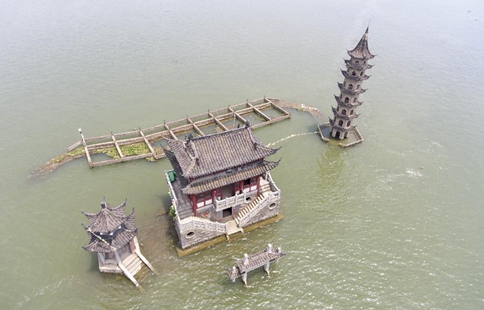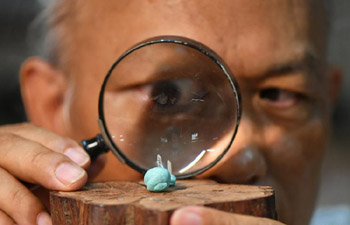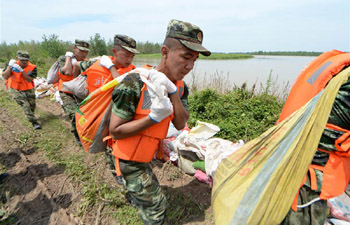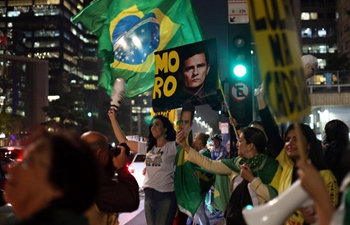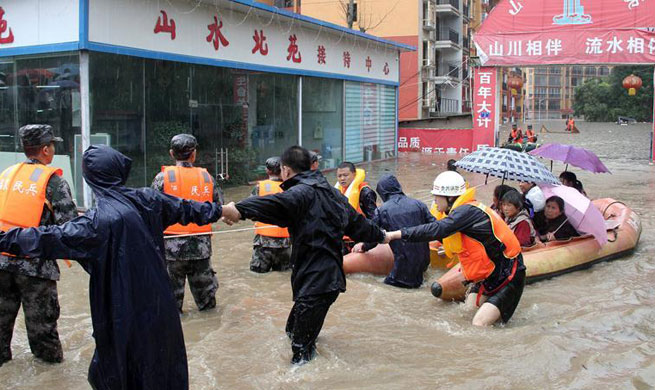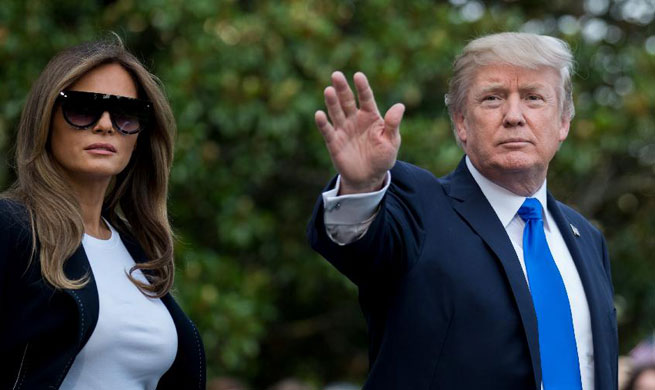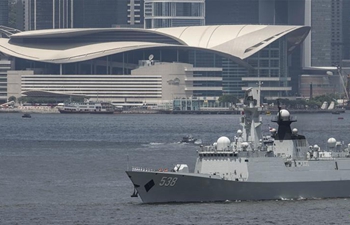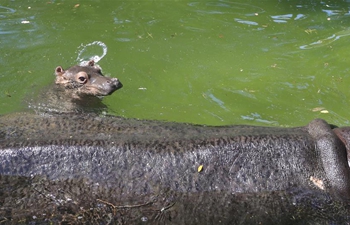TOKYO, July 13 (Xinhua) -- Japan and the European Union (EU) have recently forged a trade pact after talks that have lasted for four years. However, the mood in Japan has not been very blissful.
Part of the reasons for the slow progress of the deal in the past years was because of the Trans-Pacific Partnership (TPP), a trade pact designed to involve 12 countries which was previously spearheaded by the United States.
Japan has focused most of its attention on the deal until Donald Trump's election last year. Recently, the new president quickly decided to pull his country out of negotiations over the pact.
The move has accelerated talks between Japan and Europe and the achievements that may result could be toxic for the United States.
Trade barriers between Japan and Europe are expected to be significantly lowered for a sweeping array of products, including pork, wine, cheese and automobiles, dealing hard blows to comparable U.S. goods that have a considerable share of the two markets.
However, it is not in Japanese Prime Minister Shinzo Abe's interests to antagonize Washington. The prime minister said after concluding a political agreement on the trade deal with Europe that he will continue to engage with the TPP and try to persuade Trump to come back.
"Since President Trump withdrew from the TPP, Japan has turned its focus on the FTA (free trade agreement) with the EU and is letting that FTA set the tone for what it wants to achieve with other advanced economies in the future, possibly in an FTA with the U.S.," said Fredrik Erixon, director of the Brussels-based think tank European Center for International Political Economy (ECIPE).
"It's always difficult to keep the proper distance from the United States," Kyoto quoted Hideo Kumano, chief economist at the Dai-ichi Life Research Institute, as saying in a report on Sunday.
In Kumano's opinion, Trump had been refraining from talking about trade during the G20 summit in Hamburg, Germany to better focus on "forming a united front against North Korea (the Democratic People's Republic of Korea) with Japan and others."
The dismay is apparent -- business no more, and Japan understands that security is the top priority, even for Trump, who values jobs and business most.
Whether Japan should position itself with the United States and Europe or other countries is a difficult choice, said the same Kyoto report.
Whatever Japan's take on the move, the pact will deal a heavy blow to U.S. producers and marks a major turning aside from protectionism adopted by the current U.S. government.
Feedback on the trade deal has been generally upbeat. Both Japan and Europe were "using the G20 summit as an opportunity to show a positive example of free trade moving forward," said Erixon.
Economic expansion that comes with a bilateral agreement will also expand direct trade with other countries, said Erixon, citing China as an example, which would be able to export more to Japan and the EU as their economies grow.
The political agreement on reaching an EU-Japan free trade deal has been a positive signal supporting free trade and an open market, said Huo Jianguo, vice chairman of the China Society for WTO studies.
It shows that a pursuit of openness still dominates today's world, said Huo.




